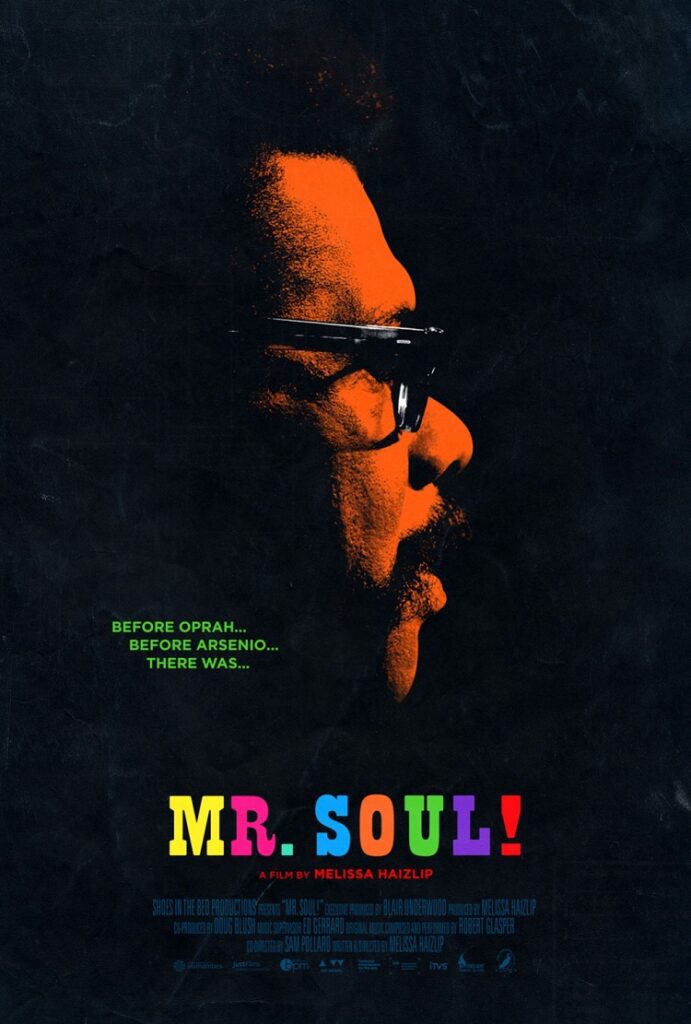
There is the old adage that history repeats itself. And if we look to the streets and look to our televisions, we see large numbers of protestors taking up the fight for the equality and protection of Black lives. These images mirror many of the images we would have seen of Black political action during the height of the Civil Rights and Black Power movements of the 1960s.
This was also the era when color came to television, but people of color were only portrayed as negative stereotypes or strange anomalies. While representation has made some progress in regard to Black representation in the media, it is still very influenced by the white gaze. But on September 8th, 1968, Soul! debuted on NET, (the PBS station for the New York Market) and brought the Black experience to viewers in their homes twice a week. This groundbreaking show was dubbed the “Black Tonight Show” but it was so much more than a variety show. Soul! brought Black Power to television in an upfront and beautiful way.
The new documentary Mr. Soul! not only documents this incredible and groundbreaking television show, but it tells the story of Ellis Haizlip, the creator and producer of Soul! who also became the show’s unlikely host. Haizlip was involved in the Black theater and arts scene, and so as he brought his vision to the screen, he brought those worlds to a much larger audience. The film also explores Haizlip as an openly gay Black man who chose to fight for equality and against violence and oppression through his televised forum and not take his politics into the streets. But since the documentary is written, directed, and produced by Ellis’s niece, Melissa Haizlip, the audience also gets a more intimate look at Ellis’s personal and family life.
Outside of examining Ellis Haizlip’s life, Mr. Soul! also serves as an introduction of this incredible show to many people. I was continually amazed at the guests that Ellis Haizlip brought to his audience over the show’s four-year run. This is just a partial list of the people that graced the episodes of Soul!:
Muhammed Ali; Ashford and Simpson; James Baldwin; Harry Belafonte; Stokely Carmichael; Ossie Davis and Ruby Dee; The Delfonics; Earth, Wind, and Fire; Louis Farrakhan; Nikki Giovanni; Al Green; Jessie Jackson; the Jimmy Castor Bunch; Gladys Knight and the Pips; Patti LaBelle and the Bluebelles; The Last Poets; Ida Lewis; Miriam Makeba; Esther Marrow; Georgina Jackson; Billy Preston and the God Squad; Sonia Sanchez; Betty Shabazz; McCoy Tyner; Bill Withers; and Stevie Wonder.
But this list is far from complete as Haizlip introduced his audience to some of the most important artists, creatives, and activists of not only the 1960s and ’70s, but of today as well.
As the political tide shifted with Nixon in the White House, Soul! lost funding due to the administration’s racist views and its targeting of cutting Black programming on public television. And while Haizlip encouraged a letter writing campaign, he refused to “engage in the politics of the streets.” Haizlip felt it was the people’s loss if they didn’t understand the need and importance of the show. So, on March 7th, 1973, Soul! came to an end with a final episode full of gratitude and thanks.
Mr. Soul! is Melissa Haizlip’s first feature-length documentary and this film is an incredible debut. She has been able to not only document the history of Ellis Haizlip and Soul!, but she connects these histories to their larger context and the impact they had on the Civil Rights and Black Power movements and the impacts that those movements had on the show and on Ellis Haizlip. Melissa Haizlip also shows her audience how far Black Power and Civil Rights has come in some respects, but how lacking it is in others. And while history definitely can repeat itself, Mr. Soul! also makes it very clear that there has still never been another show like it in the years since it left the air, but that its influence can be seen far and wide.